How conservative billionaires shape decisions inside the DeSantis administration
Records show billionaire-backed groups have shaped and supported DeSantis moves on food stamps, children's health insurance, and homeless camps.
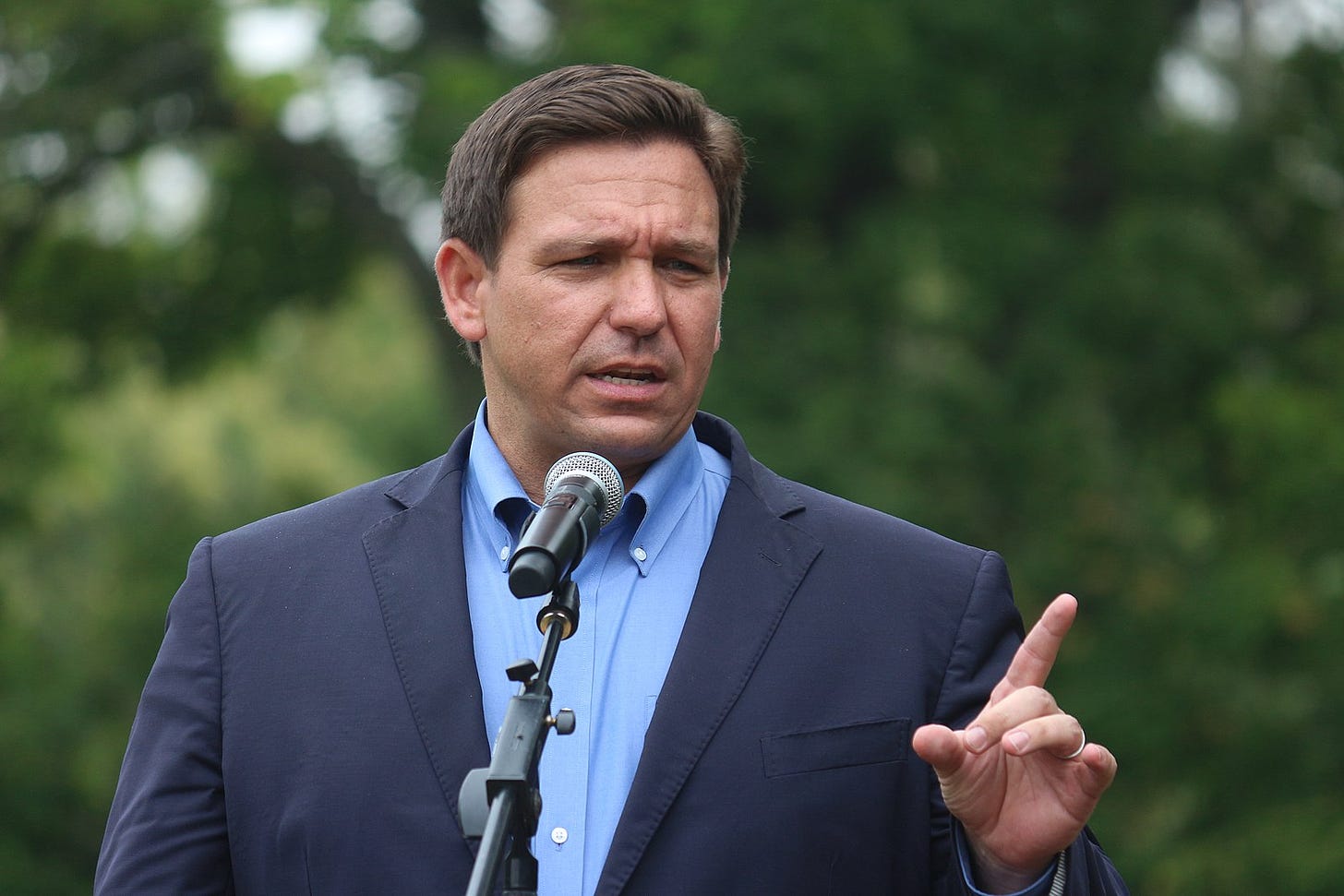
This is Seeking Rents, a newsletter and podcast devoted to producing original journalism — and lifting up the journalism of others — that examines the many ways that businesses influence public policy across Florida, written by Jason Garcia. Seeking Rents is free to all. But please consider a voluntary paid subscription, if you can afford one, to help support our work.
Late last year, the administration of Florida Gov. Ron DeSantis made it harder for older Floridians to get food stamps.
Earlier this month, the DeSantis administration sued the federal government for the right to remove poor children from public health insurance.
And last week, the Republican governor came out in support of a plan to round up homeless people across Florida and — potentially — put them into secured camps.
Each move was, at least on the surface, a disparate executive decision. But they share something in common: They are all ideas promoted by conservative billionaires and the right-wing think tanks they fund.
Taken together, the moves offer a window into how super-rich mega donors shape action across DeSantis’ state government.
Let’s start with the food stamps.
Though it didn’t get much attention at the time, the Florida Department of Children and Families late last year changed the rules for the state’s food-stamps program, which is formally known as the “Supplemental Nutrition Assistance Program.”
Funded by the federal government but administered by the states, food stamps currently help more than 3 million impoverished Floridians buy groceries and keep food on the table for themselves and their families.
But the state of Florida makes it much harder for some people to qualify for food stamps, by imposing what are commonly called “work requirements” — mandatory employment and training programs that someone must participate in each week in order to obtain and continue receiving aid.
Florida had previously imposed work requirements on adults without children between the ages of 18 and 52. But late last year, the state expanded work requirements to adults without children up to age 59 — sweeping up somewhere around 100,000 more very low-income Floridians, according to materials provided to the governor’s office and obtained in a public-records request.
Anti-poverty activists and advocates for working families have long argued that work requirements don't actually work. Rather than helping people find sustainable employment in which they can work themselves out of poverty, mandatory work requirements merely create barriers that block some people from receiving any aid at all and push others into erratic, poor-paying and poverty-entrapping jobs — all while enriching a few private contractors that administer the programs.
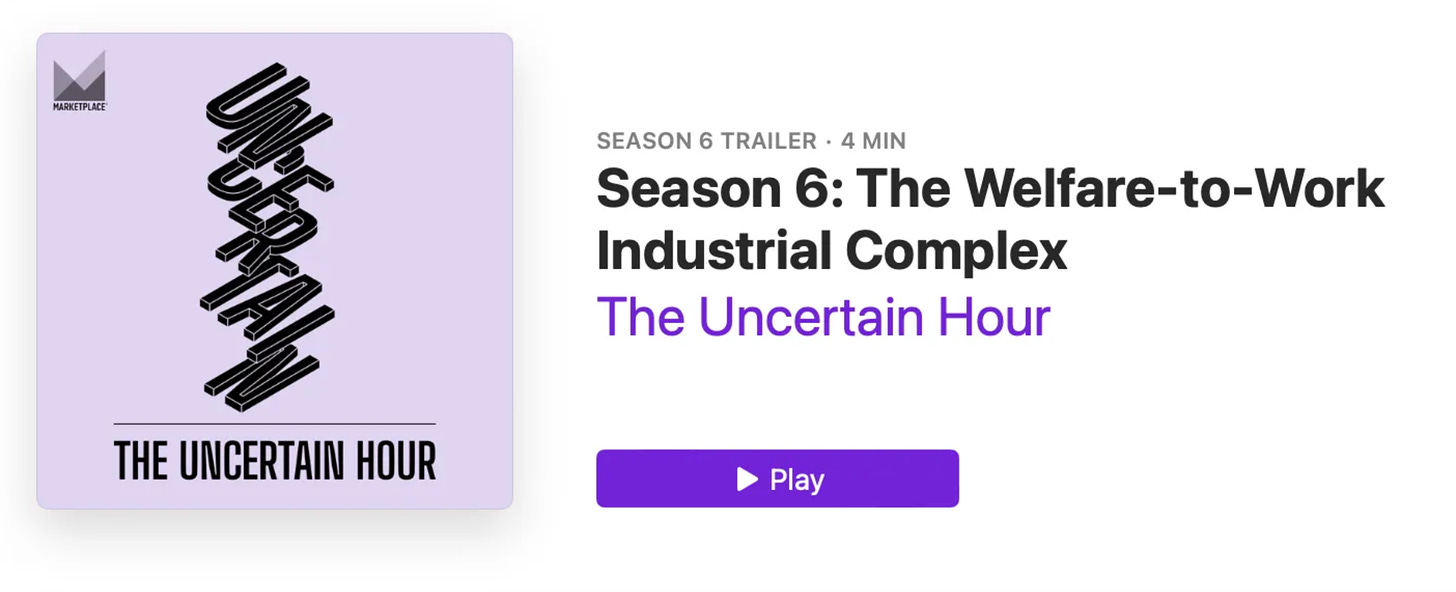
But work requirements have some influential supporters — like the Foundation for Government Accountability, an anti-worker think thank based in Naples that is also pushing bills in Tallahassee this session that would weaken Florida’s child-labor laws, erase wage and benefit protections for employees, and cut more laid-off workers off from unemployment insurance.
And the FGA isn’t just promoting work requirements generally. Records show it pitched this exact idea to DeSantis’ staff.
It happened in December 2022, when, emails show, the FGA met with senior staffers in the Governor’s Office and provided a series of policy proposals. One of the ideas they pitched? Forcing Floridians as old as 59 years old to participate in mandatory work requirements before they can get food stamps.
The recommendation was contained in a memo provided to the Governor’s Office tiled, “Taking Florida’s Food Stamp Work Requirements to the Next Level.”
One reason the FGA may have the ear of the DeSantis administration: Tax records show that its largest funder in recent years has been Richard “Dick” Uihlein, a Midwestern billionaire who is one of the biggest conservative donors in American politics.
More specifically, Uihlein is one of DeSantis’ top funders: Records show he has given DeSantis roughly $3 million in recent years — including $1.5 million to the Super PAC that supported DeSantis’ failed presidential campaign.
It’s important to note that the FGA wants DeSantis to go even further: The organization has also urged the Governor’s Office to extend food stamp work requirements to adults with children as young as six years old.
Kicking kids off health insurance
Food stamps aren’t the only safety net program that has come into DeSantis’ crosshairs recently.
Earlier this month, the state of Florida surprised anti-poverty advocates by suing the federal government over new rules related to Florida KidCare — a program that provides health insurance for low-income children whose families do not qualify for Medicaid.
KidCare is funded jointly by the federal government and the state. And Florida has long required families participating the program to pay monthly premiums in order to get coverage for their kids.
But new federal rules require the state to provide at least one year of continuous health insurance coverage for any child who enrolls in the program — even if the child’s family misses a monthly premium payment.
The DeSantis administration has sued to overturn that rule. The suit argues that federal officials have overstepped their authority, and that forcing Florida to continue providing health insurance to kids whose parents have missed a payment would undermine the integrity of the KidCare program.
To buttress its argument, the DeSantis administration cited a think tank report, published a little more than a month before the lawsuit was filed, titled, “Resisting the Wave of Medicaid Expansion: Why Florida is Right.”
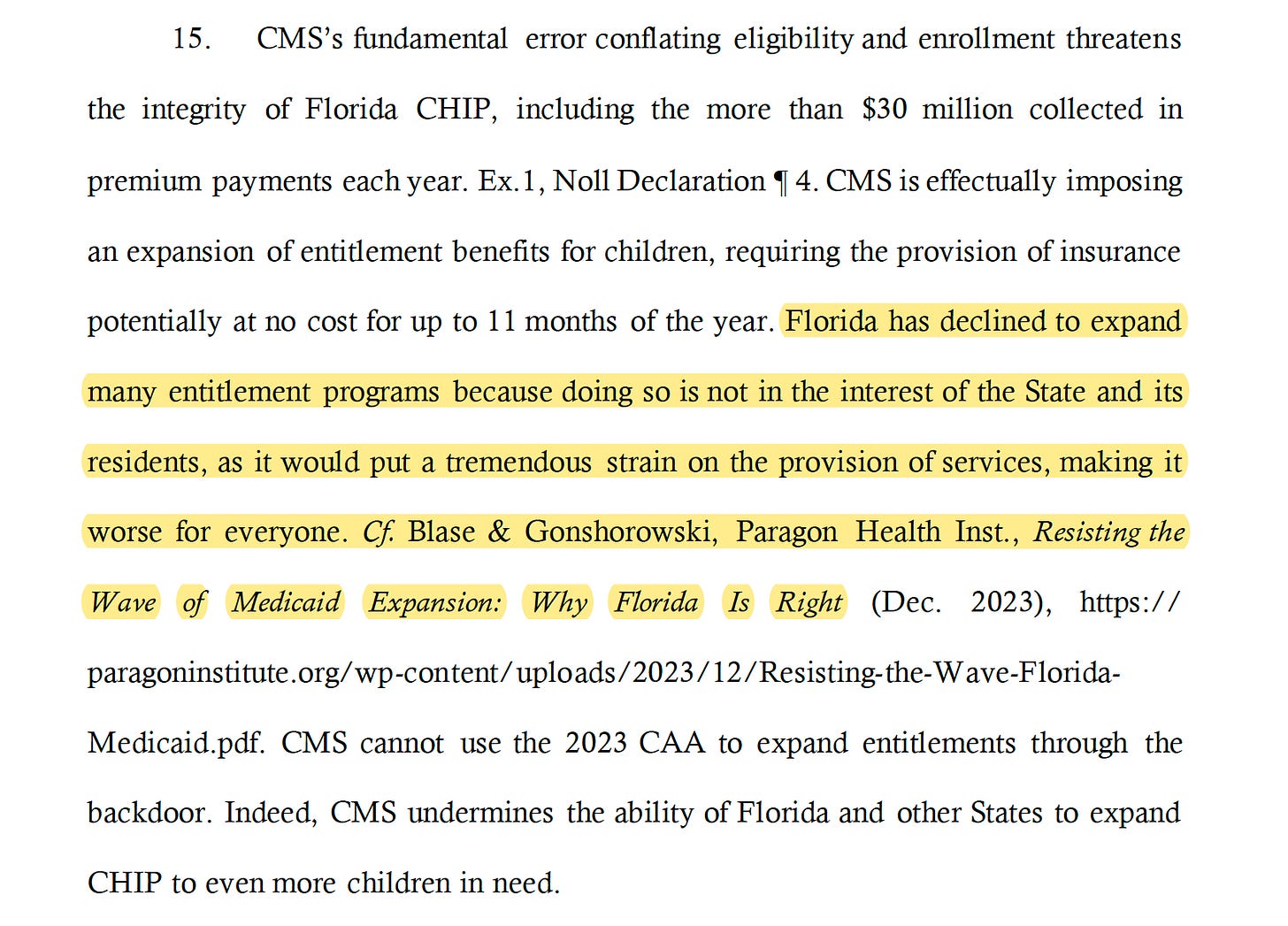
The report was produced by a two-year-old organization called the Paragon Health Institute. Tax records show it is largely funded by the nonprofit network of billionaire industrialist Charles Koch, another of the nation’s biggest conservative political donors.
All of Paragon’s first-year funding came from one of Koch’s “Stand Together Trust.” Most of its second-year funding came from the Koch group, too.
Paragon is also intertwined with the FGA. The institute’s president — and the lead author of the report Florida cited in its lawsuit — is Brian Blase. Blase is also a visiting fellow with the FGA, according to the group’s website.
Blase said he wasn’t consulted by anyone from the state about the litigation and that he didn’t know anything about the lawsuit before it was filed.
Asked if the Governor’s Office conferred with anyone from the Paragon Health Institute or the FGA before launching its suit, DeSantis spokesperson Jeremy Redfern responded, “Not to my knowledge.”
Other closely aligned conservative groups are now cheering on the state’s lawsuit — such as the Tallahassee-based James Madison Institute, which tax records show also receives substantial funding from Charles Koch’s network.
Koch and his network were important early supporters of DeSantis, though they splintered during the governor’s presidential campaign when Koch’s Americans for Prosperity ultimately decided to endorse former South Carolina Gov. Nikki Haley.
But this is a relationship that DeSantis likely wants to repair as tries to rehabilitate his political reputation and prepare for a second presidential run. Politico Florida reported last week that DeSantis allies expect him to run again in 2028 — and to restart his political fundraising operation later this year.
Sweeping up homeless people
Then there’s another conservative think tank that seems to have keys to the Governor’s Office: The Texas-based Cicero Institute.
For instance, records show a lobbyist for Cicero reached out to the Governor’s Office earlier this year to pitch a couple of ideas — including legislation meant to crack down on homeless people sleeping on public property.
Some of the key ideas from Cicero’s proposed legislation — such as empowering individuals and businesses to sue a city or county that fails to round up sleeping homeless people — later surfaced in a pair of bills that are now rapidly advancing through the Florida Legislature.
House Bill 1365 and Senate Bill 1530 aren’t identical to the legislation that Cicero pitched to DeSantis, and Cicero says it did not write those bills. But the organization is supporting them.
And now DeSantis is, too. The governor staged a press conference in Miami Beach last week, where he announced that he would work with lawmakers to get a version of the Cicero-backed legislation passed this year.
“I’m confident we’re going to get something across the finish line,” DeSantis said.
Cicero was founded by Joe Lonsdale, a multimillionaire tech investor who has developed a close relationship with DeSantis in recent years. DeSantis has personally met with Lonsdale “several times,” according to emails between Cicero’s lobbyists and staffers in the Governor’s Office.
Lonsdale is also a big DeSantis political donor. He even hosted an event in Texas for the governor early in DeSantis’ presidential campaign.
Like the FGA and food stamps, this is also an area where Cicero would like Florida to go even further. For instance, records show Cicero has also pushed the DeSantis administration to take federal grants meant to fund permanent housing for homeless people and use the money on temporary housing instead.
Another issue of interest to billionaires
There’s another recent issue you could add to a list like this. It involves one of the most fraught issues in all of Florida politics: Gambling.
DeSantis waded into the issue last week, when he came out in support of a plan to let the Fontainebleau Hotel in Miami Beach build a casino.
That’s longtime goal of Jeffrey Soffer, a billionaire real-estate mogul whose company owns the famous resort. Soffer also happens to be the owner of a a private jet that DeSantis enjoys using.
Now, the battle over whether to build a casino in Miami Beach is actually one that divides Florida’s billionaire class. For instance, legislation to let it happen has been declared dead this session — thanks to opposition from influential figures like Ken Griffin, the billionaire hedge-fund investor who used to be one of DeSantis’ very biggest donors.
But there’s a key difference between Griffin and Soffer.
Griffin ultimately decided not to support DeSantis’ presidential campaign. He even publicly chastised the governor for what Griffin called DeSantis’ “pointless” feued with Disney.
Soffer, by contrast, was a top financier of DeSantis’ failed run. He even gave $1 million to DeSantis’ main Super PAC in late July — after DeSantis had already begun to collapse.
Correction: A previous version of this story incorrectly described Joe Lonsdale as a billionaire. He is a multimillionaire, whose net worth has been estimated by Forbes at $425 million.




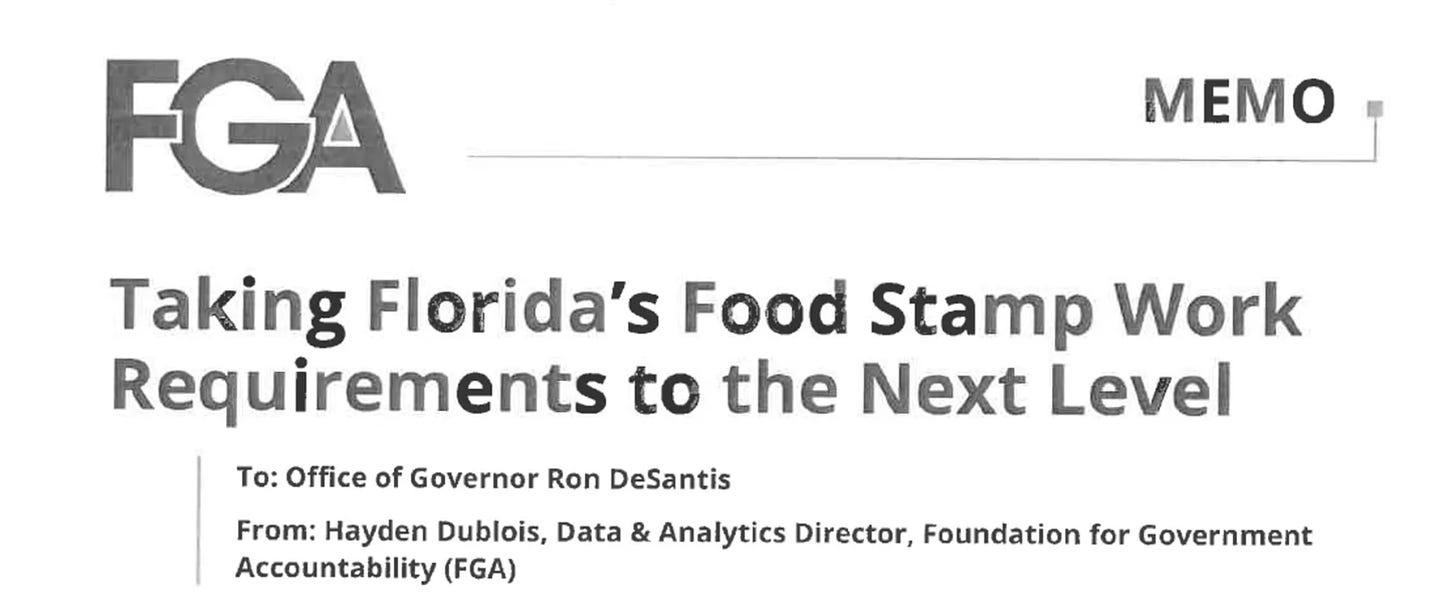
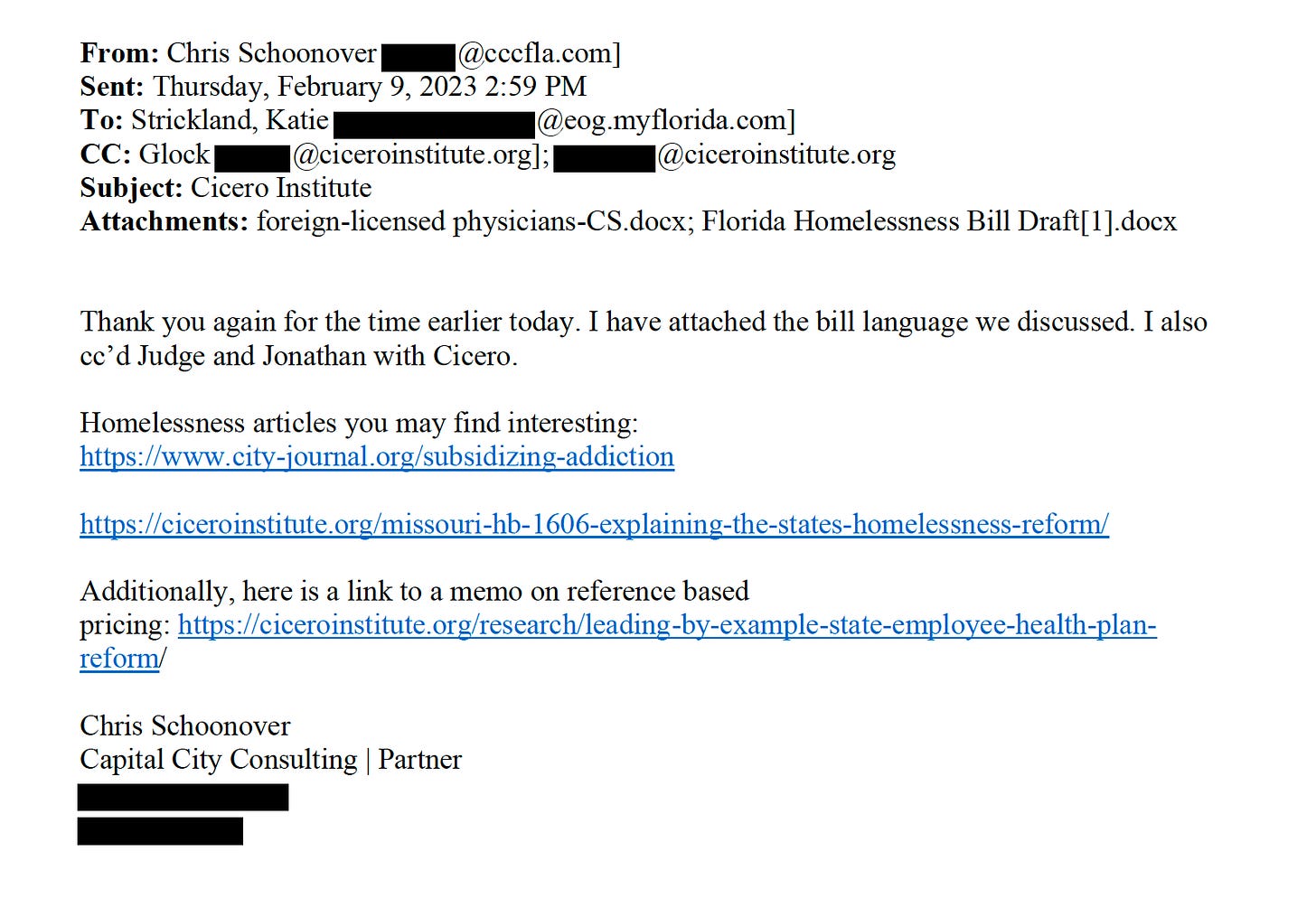
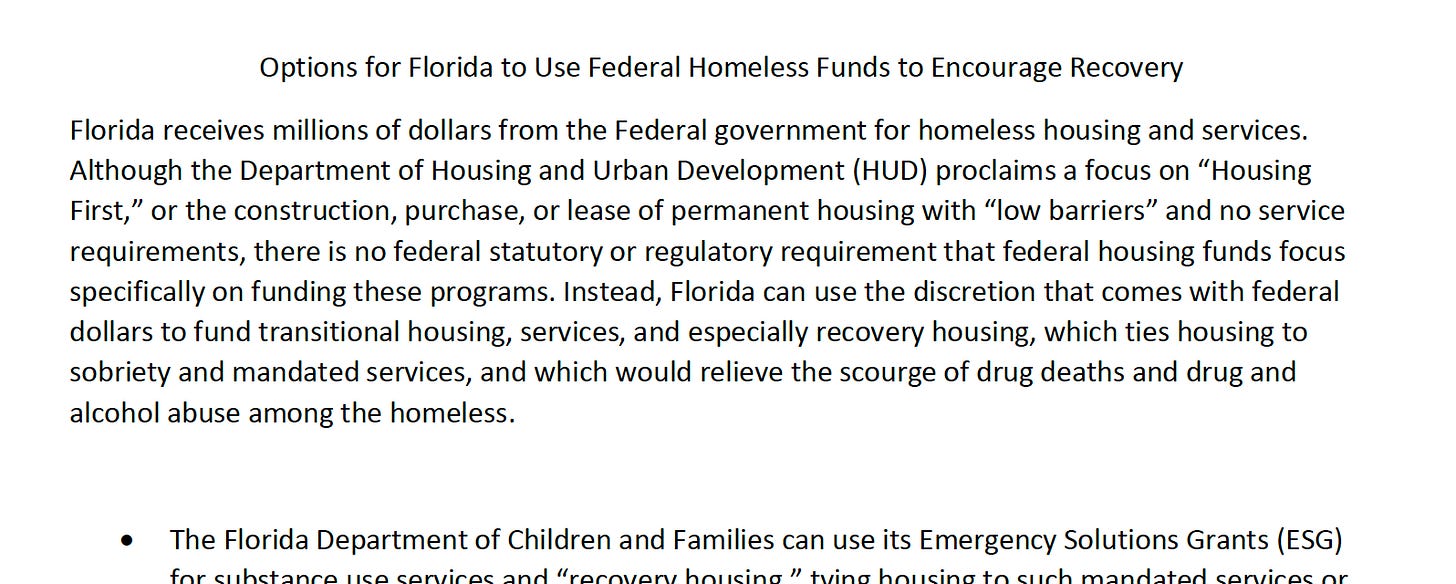

Thank you for sharing this information 🙌
It's a no win situation to be a Citizen of Florida under this Dictator. Little Ronnie & his princess wife are going to cash in no matter the consequences.